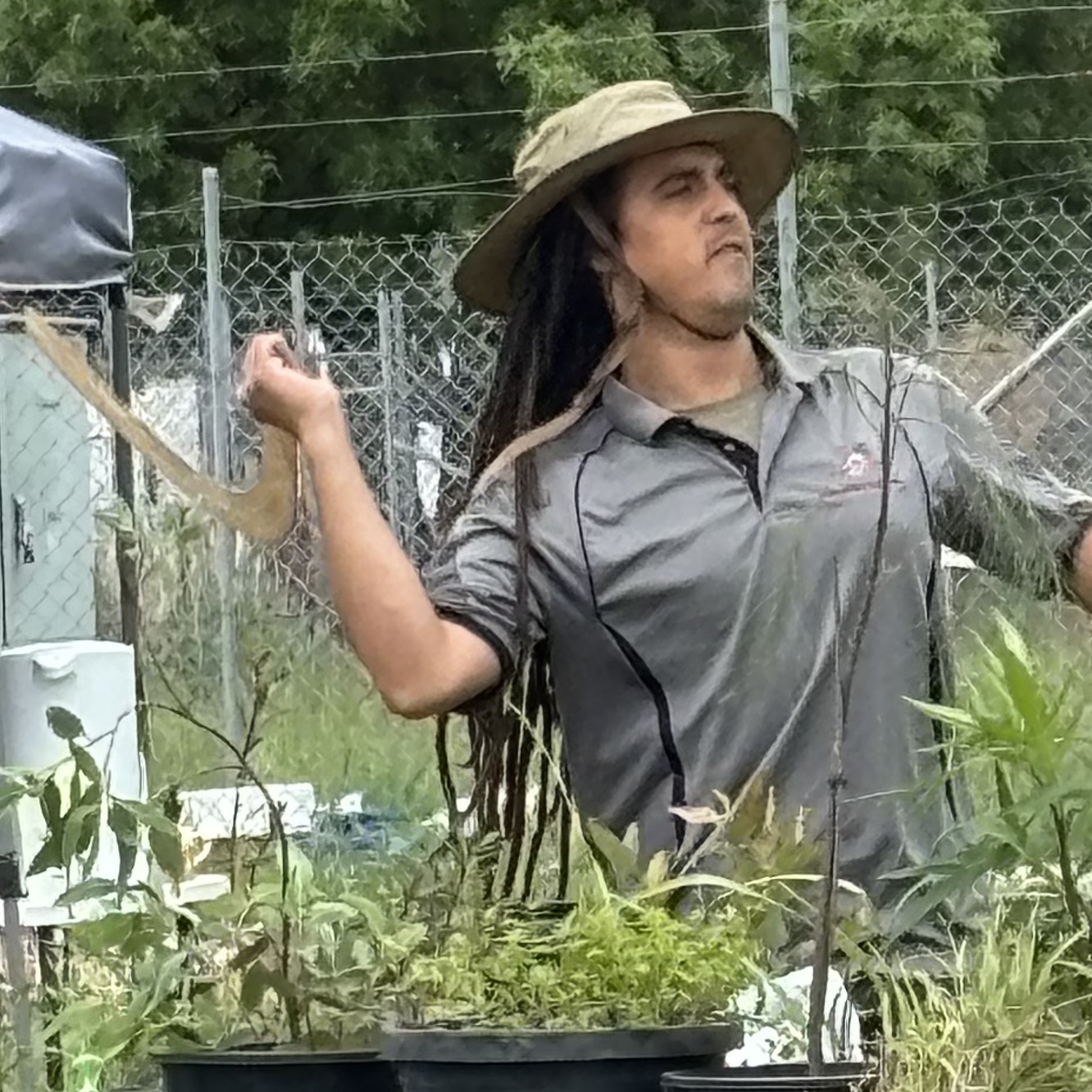A keen group recently came together for a unique and enriching experience - the Aboriginal Plant Use and Native Plant Propagation Workshop hosted by Yass Landcare. With workshops from Aaron Chatfield of Dreamtime Connections and Blake Cannakle, native plant propagation expert, this event aimed to foster a deeper connection with the land and its indigenous plant heritage while also promoting awareness of our native plant resources.
Aaron Chatfield a Gamilaroi Man with deep connections to Ngunawal people and Country, led the group through an insightful journey into the world of native plants. Participants learned about a vast array of edible and medicinal plants that have been a part of Aboriginal culture for generations. Some of the featured species included the native raspberry (Rubus Parvifolius), native mint (Prostanthera lasinathos), and the Bulnie Lily (Bulbine bulbosa). These plants have not only served as nourishment but also as traditional remedies for various ailments.
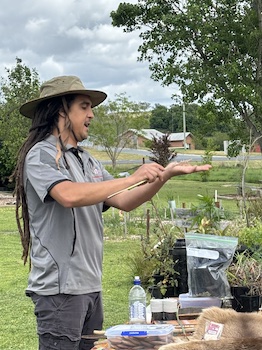
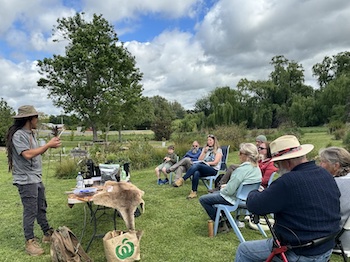
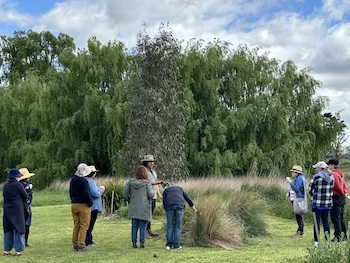
The workshop delved into the fascinating practice of using plants in hunting, an essential skill for indigenous communities. Participants discovered how plants like the Austral Indigo (Indigofera Australis) were used for fishing and how the sound of the blowing through the Lomandra grass could be utilised to "whistle up" snakes. Weaving techniques using native grasses and tree sedges, like the Red Stringy Bark (Eucalyptus macrorhyncha), were explored, showcasing the ingenuity of Aboriginal people.
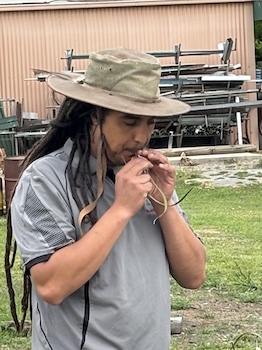
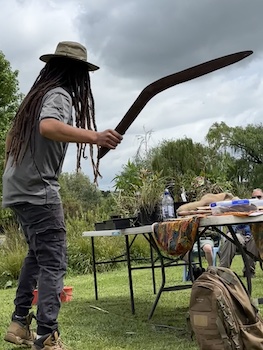
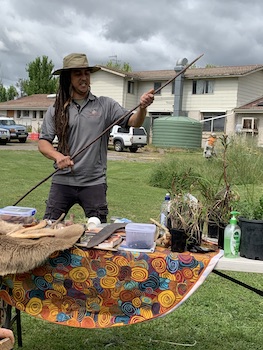
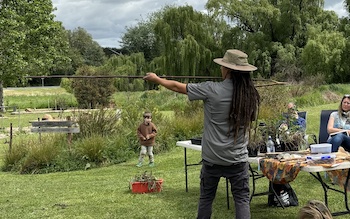
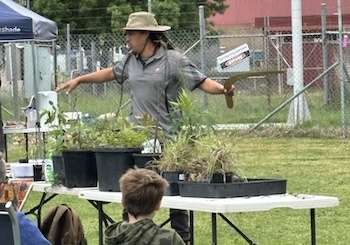
To further immerse themselves in Aboriginal culture, participants had the chance to familiarise themselves with traditional tools such as the boomerang, woomera, spears and bundi sticks. These tools have various, and some unexpected uses in hunting and gathering and showed the remarkable innovation of Australia's indigenous peoples.
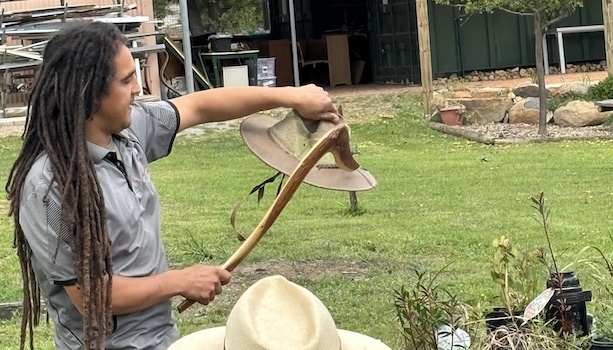
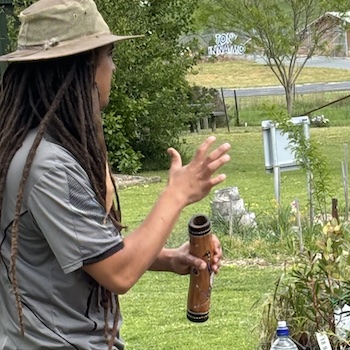
Of course, no workshop is complete without a shared meal. Participants enjoyed morning tea with freshly baked wattle seed biscuits and peppermint and raseberry tea, which provided a delicious and culturally rich experience.
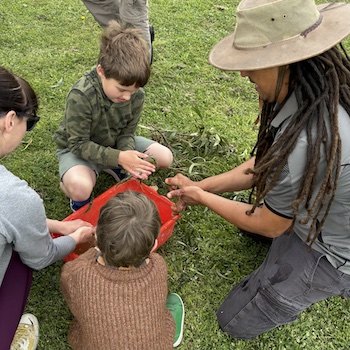
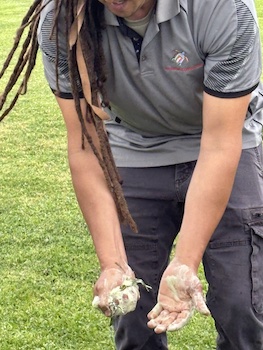
In addition to the cultural aspect of the workshop, Blake Cannakle took the lead in teaching the group about the biology of soil and the critical role it plays in plant propagation. Participants got their hands dirty as they were introduced to various propagation techniques, including smoke treatment, scarification, surface sowing, lightly covered sowing, heat treatment, and cutting. Drawing on our surroundings participants were encouraged to wandering through the native plant gardens where they were shown the best way to take cutting for propagation. This hands-on experience was invaluable in understanding the intricacies of nurturing native plants.
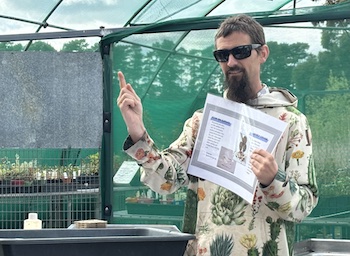
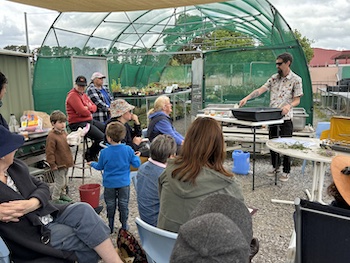
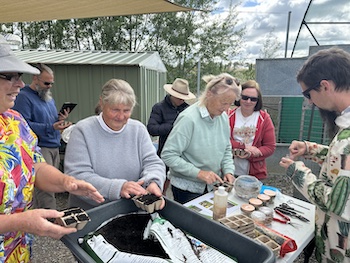
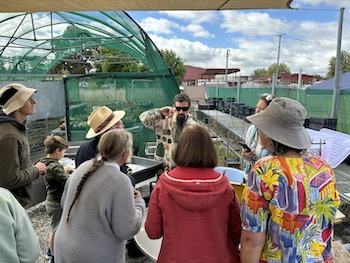
As the workshop came to a close, everyone left with a tray of six different native plants, ready to be cared for and grown at home. This tangible connection to the land and its indigenous heritage will continue to foster appreciation for Australia's unique flora and the significance of preserving Aboriginal knowledge and practices.
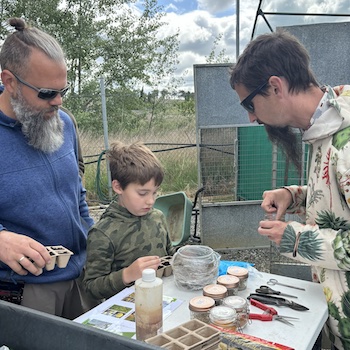
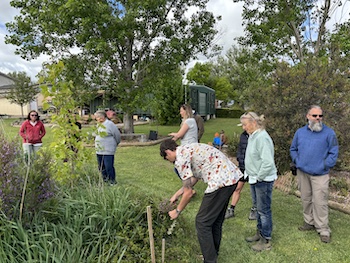
The Yass Landcare Aboriginal Plant Use and Native Plant Propagation Workshop provided participants with a holistic experience that combined cultural enrichment, ecological education, and hands-on learning. It emphasised the importance of understanding and preserving indigenous practices and maintaining a strong connection with the land. In doing so, it echoed the principles of sustainability, biodiversity, and respect for the earth—a message that resonated deeply with all those who attended.
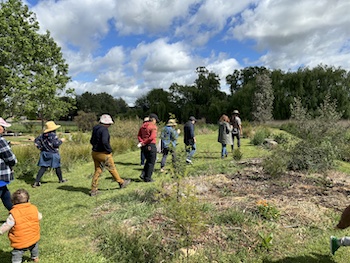
_____________
The workshop is funded under the “Working Together” Program which aims to increase opportunities to consciously develop stronger connections and partnerships between Landcare groups and Aboriginal Communities.
The “Working Together” Aboriginal Communities Engagement Program is an initiative made possible by the NSW Landcare Program. A collaboration of Local Land Services NSW and Landcare NSW Inc. supported by the NSW Government.

